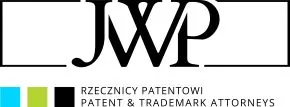- within Technology topic(s)
- in Turkey
The metaverse is full of surprises: graphics straight out of the '90s video games, strange and uncomfortable equipment needed to enter the virtual space, many concepts associated with science fiction. And to top it all off, avatars with no legs. This is what "Meta", or Mark Zuckerberg's metaverse, looks like today. Recent studies of its users have indicated that there are few of them and they are not particularly satisfied with the activities offered by Mark Zuckerberg. However, this has not discouraged many companies such as Nike, Louis Vuitton or Gucci, from investing in other metaverses and offering their products there.

meta.com.pl (Facebook)
Since there are so few users in the metaverse so far, what attracts the business world so much? There can only be one answer: possibilities, those identified and those not yet discovered. As in many areas, development leaders have a chance to take the best place in the new world and then become role models for many others. At this year's Infoshare, the metaverse caused waves in the tech and business world like none other. The topic was discussed many times from different points of view. Among the industries mentioned as the ones that can gain the most from entering the metaverse are the following: fashion, gaming, entertainment and e-learning. Along with new business opportunities, there are also new challenges, in particular legal issues that need to be solved. One of the basic issues that are crucial for running a business in Meta is the protection of intellectual property, which is going to face new challenges in the virtual world.
Anyone can become a creator in the world of the metaverse, which means the possibility of protecting their work with, among other things, copyrights. Even today, many entities use registered trademarks in the virtual world as well. While trademark application guidelines have already been developed at the European level on what wording in the list of goods and services relating to virtual reality will be accepted, the issue of enforcing the rights related to these registrations is still full of questions. One of them is the issue of finding infringements and of protection against them, another is the phenomenon of transferring trademarks to the metaverse without the consent of their owners in the real world, while yet another is the issue of protection of unregistered trademarks used in the virtual world.
The enforcement of protection will face completely new challenges, such as the determination of the applicable law or the jurisdiction of the courts of a given country. At this point, it should be noted that some issues are revealed depending on whether we are dealing with a centralized metaverse, i.e. one that was created and is managed by one company, or a decentralized metaverse that is managed and controlled by its users. While for centralized worlds like "Meta," formerly known as Facebook, user-accepted regulations imposed by the corporation provide for a procedure in the event of an infringement of intellectual property rights, for decentralized worlds, enforcing the protection of these rights can become a challenge. Most likely, in this respect, the legislator will be required to intervene, because already some websites contain restrictions on the possibility of enforcement in their user agreements, for example, in the take down notice procedure, which, in the opinion of the author or the trademark holder, infringe on their rights. This means that standard cease and desist letters may not work as effectively in the decentralized world of the metaverse. For example, the Decentraland platform, a 3D virtual world platform based on blockchain technology, available via a browser, provides a "Notification Mode in the event of Copyright Infringement", without guaranteeing that the notices submitted will actually be forwarded by the Decentraland Foundation. The disclaimer "as far as possible, the [Decantraland] Foundation may attempt to reach a party that may infringe on your rights to provide your notice. The Foundation is not able to assess the legal validity of claims" does not sound like an effective way to protect copyright.
Another aspect is the choice of law applicable to disputes related to activities and created elements of the metaverse world. When starting their adventure, the user accepts various types of agreements, the acceptance of which may also be associated with the acceptance of dispute resolution on the basis of exotic legal provisions. Such provisions in the agreements, at least in theory, could limit or significantly hinder the enforcement of protection by the owners of intellectual property rights. In addition, in the case of trademarks, the principle of territoriality of trademark protection may pose a challenge of some kind. The trademark is protected in the territory of one country or in selected countries, or in a selected region. In this context, the right holder who asserts their rights will have to prove that the infringement of a trademark in the metaverse had consequences in the area where the trade mark is protected, which may be difficult. This problem could be solved by the principle that EU law binds entities that direct their services to users from the European Union, regardless of where the service provider is established. The introduction of such a principle is proposed by the European Commission in the Digital Services Act.
Another principle characteristic of trademarks, which may require clarification, is the principle of specialisation. The possibility of protecting a trademark against infringement upon it in the metaverse raises some doubts when comparing virtual goods and services with real world goods and services. Technically, they are not the same goods or services. It can be even more difficult for goods and services that do not have their counterpart in reality. In the most famous case of trademark infringement in the metaverse, that is, the American case of Nike v. StockX LLC, the NFT token was associated with the original product. In February 2022, Nike filed a lawsuit against the e-commerce platform Stockx before the District Court of New York, accusing it of trademark infringement and reputational damage. According to Nike, Stockx sold tokens (NFTs) of Nike's sneakers using Nike's trademark without their permission. Nike also alleges that StockX is "misleading" consumers by offering sneakers at heavily inflated prices, while Stockx argued that its NFT tokens are not virtual products, but images related to an original product that has been duly authenticated. Nike has accused it of selling counterfeit goods, yet those have been verified as genuine in the course of the proceeding. We still do not know the court's decision in this case, but it will certainly set the direction for assessing trademark infringements in the metaverse.
As can be seen in the examples presented, legal aspects certainly play a key role in shaping our new reality. We must be patient, however, because it often takes time to agree and adopt new rules. The fact that the metaversal worlds appeared quite quickly in the collective consciousness, and project teams working on solutions adapted to the new, parallel reality are being formed at the level of the EU institutions, give a positive outlook. Modification of the current regulations and new solutions are needed as soon as possible, so that by the time the number of metaverse users is truly significant, the legal aspects of their functioning have been refined to a satisfactory extent.
The content of this article is intended to provide a general guide to the subject matter. Specialist advice should be sought about your specific circumstances.


